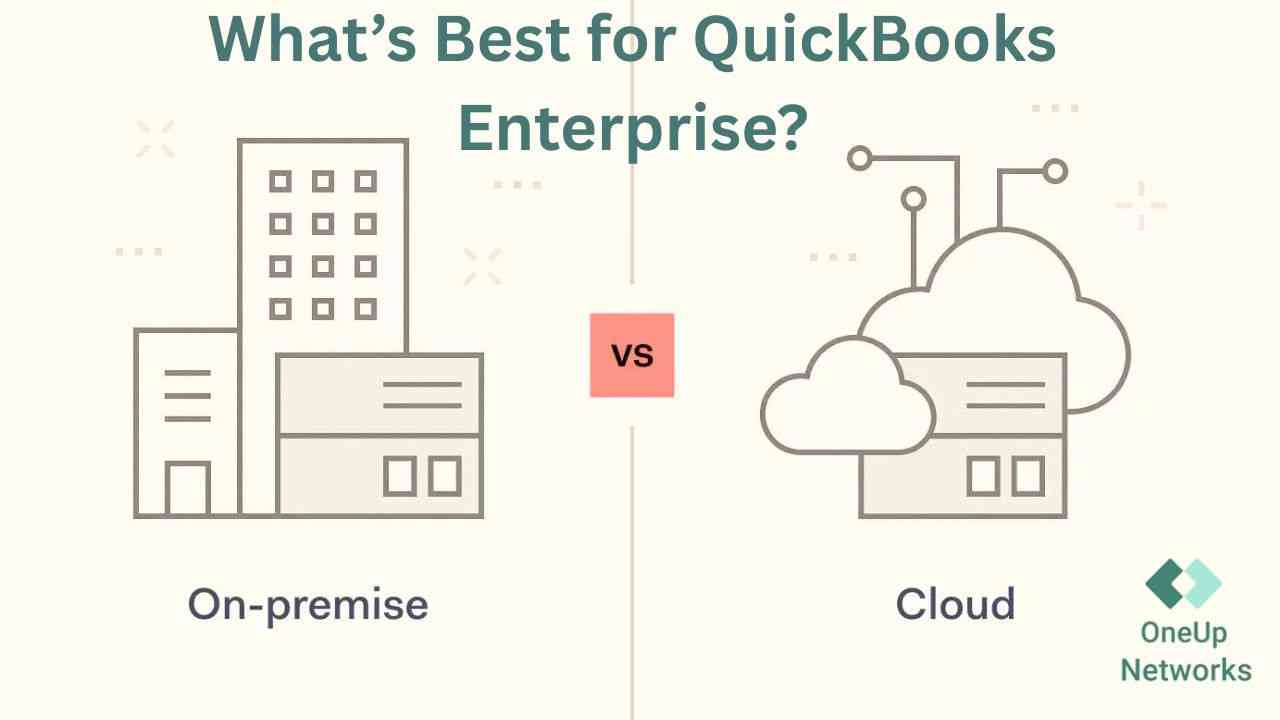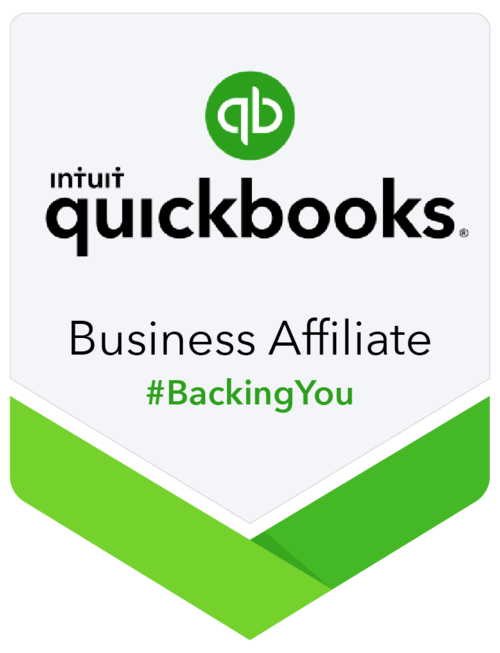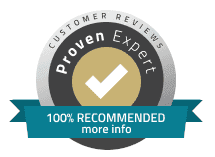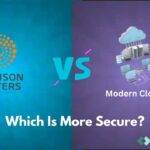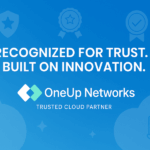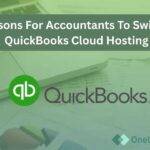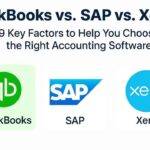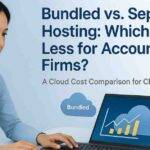In today’s rapidly changing accounting and finance industry, how you host software like QuickBooks Enterprise can greatly impact agility, security, and total cost. The debate between on-premise vs cloud is more urgent than ever, especially for US-based firms striving for efficiency and compliance. This comprehensive guide cuts through the noise to help you understand the difference between cloud and on premise, with practical examples, clear definitions, facts, and expertly crafted explanations using the most-searched terms like cloud vs on premise, on premise meaning, and cloud computing vs on premise.
Table of contents
What Does On-Premise Mean?
On-premise (also called on-premises, onprem, or on prem) refers to a solution installed and run on hardware you own, located at your business site. With on premise software, your IT team manages updates, security, backups, and compliance. All data and infrastructure are physically within your office walls.
On-premise meaning: Complete local control, requiring in-house management for everything from access to updates and disaster recovery.
What Is Cloud Computing?
Cloud computing (or cloud-based) moves everything offsite. Here, QuickBooks Enterprise (QBES) and your data reside in remote, secure data centers run by specialized providers. You access the software via the internet, often paying a subscription that scales with your use.
Cloud definition: A flexible, internet-based model for securely hosting, accessing, and scaling applications such as QuickBooks Enterprise, often requiring no physical infrastructure at your site.
Quick Comparison – Cloud vs On Premise
| Feature | On Premise Server | QBES Hosting Solution |
|---|---|---|
| Deployment | Local hardware in office | Hosted online by provider |
| Access | In-office or via complex VPN | Anywhere, any device, 24/7 |
| Upfront Cost | High (hardware, IT, setup) | Low or none (subscription model) |
| Ongoing Expenses | Maintenance, upgrades, energy, IT | Subscription fees |
| Updates | Manual by IT team | Automatic, always current |
| Security | Managed internally | Provider ensures enterprise level |
| Scalability | Buy/install more hardware | Instantly adjustable |
| Disaster Recovery | You are responsible | Automatic, redundant, provider-led |
| Compliance | Self-managed | Provider takes responsibility |
In-Depth: On-Premise vs Cloud for QuickBooks Enterprise (QBES)
On-Premise QuickBooks Enterprise
Typical Setup: Physical server at your firm, accessed by local computers.
Advantages:
- Full control: You manage data, customizations, security.
- Minimal internet reliance: Works even if your broadband fails.
- Data sovereignty: Some industries require onsite data storage.
Disadvantages:
- High capital and IT burden: Hardware, software, IT salaries, space.
- Complex disaster recovery: Backups and hardware repairs are all your responsibility.
- Limited accessibility: Difficult, slow, or risky remote access.
- Scaling is time consuming: Need to buy and install new servers.
Cloud-Hosted QuickBooks Enterprise
Typical Setup: QuickBooks runs on a highly available cloud server of OneUp Networks, accessible anywhere with internet.
Advantages:
- Universal access: Work from any location, on any device—perfect for remote or distributed teams.
- No big upfront investments: Subscription model replaces hardware costs.
- Automatic backups & updates: Managed by seasoned experts.
- Industry-leading security: Encrypted data, compliance certifications like SOC2/HIPAA.
- Easy scaling: Add users or capacity on demand.
- Disaster recovery included: Redundant offsite data and rapid failover.
Disadvantages:
- Internet dependency: Outages can temporarily block access.
- Data residency: Some regulated sectors may need careful vetting of provider compliance. OneUp networks as HIPPA compliant, helps you with 120-day rolling data backup.
- Limited deep customization: Rare, but possible in complex multi-app scenarios. Also, this is done for you by managed service providers in the dedicated server designed for your firm.
Comparison Table for Better Understanding:
Key Facts & Real-World Stats for QuickBooks Enterprise Usage-
- Global Cloud Spending: Estimated to exceed $1.35 trillion by 2027 across industries.
- QuickBooks Hosting Growth: Over 55% of US SMBs now run QBES via the cloud, a jump from 45% three years prior, mainly due to accessibility and lower TCO.
- IT Cost Savings: Cloud-hosted QuickBooks can lower IT costs by up to 35% over five years versus an on-premise setup.
- Downtime: Cloud downtime for reputable providers averages under 0.1% per year, while on-premise servers are more vulnerable to hardware failure and require manual intervention.
- Security Investment: Leading cloud providers spend millions annually on security and compliance compared to most SMB IT budgets.
Use Case with OneUp Networks : Migrating QBES from On-Premise to Cloud
ABC Advisors, a mid-sized US firm, had struggled with costly server upgrades, slow remote access, and frequent downtime during tax peak seasons. After that, the firm migrated to cloud-based QuickBooks Enterprise hosting with OneUp Networks. As a result, their team could work from any client site. Additionally, nightly backups and automatic updates significantly reduced risk. Consequently, IT support calls dropped by over 80%, and the firm reported saving $14,500/year on maintenance and upgrades. Furthermore, new hires could be onboarded instantly, with no configuration delays.
Step into the future—choose a secure, compliant, US-based hosting provider for your QuickBooks Enterprise needs today.
Why Cloud Is Now the First Choice in the Accounting Industry?
Most accounting and finance organizations now favor cloud-based solutions. The combination of reliability, flexibility, enterprise-grade security, and major cost savings makes cloud hosting the optimal path for QuickBooks Enterprise.
When to Choose Cloud:
- Teams need remote or hybrid work capabilities; moreover, cloud access supports seamless collaboration.
- Rapid growth, scalability, or a seasonal workforce is expected; in this case, cloud infrastructure adjusts easily to demand.
- Reducing up-front costs is a key goal; as a result, cloud eliminates large hardware investments.
- Ongoing IT complexity must be minimized; furthermore, providers handle maintenance and support.
- Industry compliance and audits are required; therefore, choosing cloud ensures expert oversight by qualified providers.
When On-Premise May Still Be Needed:
- Compliance mandates absolute data residency; albeit uncommon in the U.S. accounting sector, this requirement may apply to certain firms.
- Custom hardware or software integrations are essential; in such cases, on-premise systems provide necessary control.
- Internet connectivity is unreliable or limited; thus, local hosting may be more dependable in those environments.
Practical Guidance: How to Decide
- Review your current IT infrastructure and integration needs; after that, identify any technical gaps or custom requirements.
- Forecast future scaling needs such as remote teams, growth, or mergers; at this point, consider whether your current setup supports these goals.
- Calculate the total cost of ownership (TCO) over five years; rather than focusing only on the initial price tag.
- Vet cloud providers carefully or check About Us section; as has been noted, ensure they meet compliance, security, redundancy, and location standards (such as U.S.-based data centers).
Cloud vs On-Prem: Frequently Asked Questions (FAQ)
A: On-premise solutions are hosted on your local hardware with in-house IT managing everything. Cloud-based QuickBooks is hosted by a third party, accessed over the internet, and the provider manages all maintenance and security.
A: Top cloud hosting providers employ robust encryption, round-the-clock monitoring, multi-factor authentication, and compliance with standards like SOC 2 and HIPAA.
A: Your data remains accessible and is often safer (backups, redundancy), but providers should offer clear data access policies. Always review SLAs and compliance documentation.
A: Cloud-hosted QuickBooks needs a stable connection. Some providers offer hybrid or offline modes, but on-premise still works offline (but only locally).
A: No, most firms save money over time with the cloud—lower upfront, free migration, data backups and 30–40% reduced IT costs over years.
A: The cloud covers most configurations, but very specialized integrations might require on-premise or hybrid solutions.
A: Migrations usually complete in a few days, depending on data size and complexity.
Conclusion: Make the Right Choice for Your Firm
For the vast majority of US accounting and finance firms, cloud hosting for QuickBooks Enterprise delivers unmatched flexibility, security, cost-effectiveness, and ease of scaling. As industry adoption surges past 70% by 2025, cloud is set to be the new normal for compliance-driven, high-performance financial operations.
Don’t Miss These Helpful Blogs:

